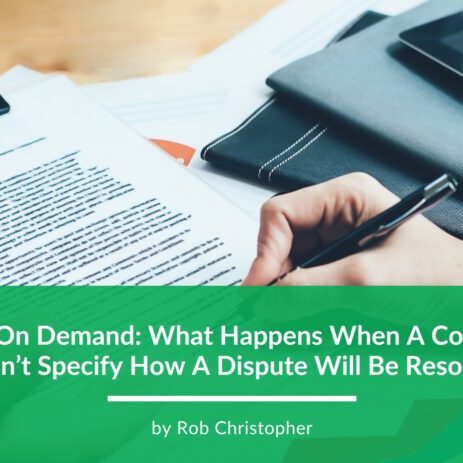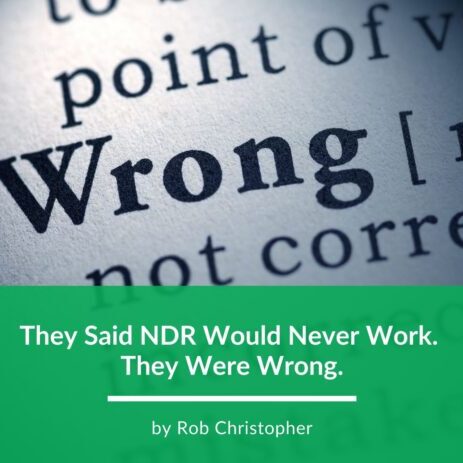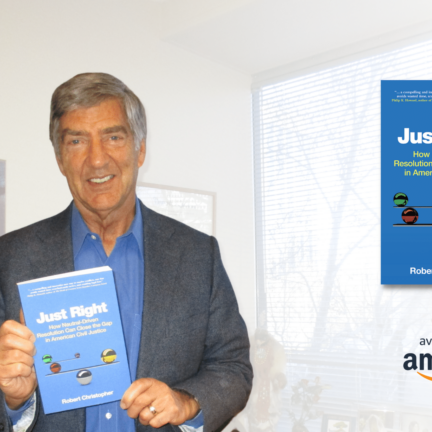What Makes a Neutral a “Good” Neutral?

The number one consideration for choosing a dispute resolution service is making sure your neutral is good, whether they are a mediator, arbitrator, or arbiter; but what makes a neutral good? What does “good” really mean in this context? After interviewing business owners in depth to figure out what matters to them the most about the facilitator or decision maker, these five criteria emerged as the most important.
- Neutral – Disputing parties wanted to make sure that their decision maker had no conflicts of interest, that the neutral hadn’t worked with either party before, or if they had decided a dispute involving one of the parties in the past, that the circumstance and the details were disclosed before a neutral was chosen. Part of this neutrality criteria also included non-bias, which was mentioned over and over by survey respondents. They wanted to make sure that the neutral had not been employed, consulted for, or been an expert for either party.
- Training – The second most important criteria mentioned was that the neutral had specific training, whether it was formal mediation or other dispute resolution training. If an arbitrator was used, the parties wanted this person to have had mediation training, as well as knowledge in the specific area of substantive law.
- Knowledge – Knowing the area of law in dispute was of chief importance when choosing a neutral. I heard story after story where the arbitrator assigned to their dispute didn’t know the area of law that applied to the dispute – this concern ranged from not knowing it at all to having little experience in the requisite area of law.
- Experience – When deeming a neutral “good,” two types of experience emerged as important. First, specific dispute resolution experience mattered; and second, industry-specific experience mattered. It boiled down to – does this neutral have experience deciding cases like mine.
- Psychologically minded (people skills) – The soft skills around listening and being able to read people counted. Can the neutral hear or get to what is really at issue? Does one side really just want an apology, or do they actually want money or some specific action to be taken? Can the neutral get to the crux of the dispute notwithstanding the views being expressed?
Stepping back to really understand what business people wanted when choosing a dispute resolution service boiled down to having a truly experienced, neutral decision maker. Effectiveness came down to being able to be proactive and to really listen to what is being said rather than taking everything at face value. Listening for understand and letting each person be heard went a long way to reach a high level of satisfaction with the neutral and the dispute resolution process itself.
The most effective neutrals were the ones who were able to cut through all of the posturing, complaining, and reiterating of each story to reveal the essence of the dispute and what the desired outcome was. Notice that the most important criteria wasn’t the neutral being an expert in the law but was someone adept at listening and homing in on the truth. At the end of the day, even if they were wrong, the business owners deemed the neutral “good” if they walked away feeling heard and acknowledged.
More to read
NDR on Demand: What Happens When a Contract Doesn’t Specify How a Dispute Will Be Resolved?
The best way to deter threats of litigation and minimize the costs, duration, and distractions of resolving any dispute is to put a dispute resolution clause specifying NDR — Neutral-Driven Resolution — in all your contracts BEFORE there is a problem. That means that if a dispute should arise between a business and a contractor,…
They Said NDR Would Never Work. They Were Wrong.
Many people are surprised by how effective NDR can be. Since publishing my book and speaking at events about NDR (Neutral-Driven Resolution), I’ve often been asked a simple question: Does it work? And if it really does lower the costs and the time it takes to settle common disputes, why doesn’t everybody know about…
“Morgan Hill author releases new book”
The Morgan Hill Times featured Rob’s new book in an article ahead of his “Meet the Author” night at Booksmart. “Legal disputes and conflicts cost businesses billions of dollars a year in lawyers’ fees, lost productivity, time and aggravation. A new book by Morgan Hill author Robert Christopher proposes an innovative, faster and simpler way…
Not All Disputes are Equal
Not all business and legal disputes are alike, and not all of them can be resolved in the same way. In writing my book Just Right: How Neutral-Driven Resolution Can Close the Gap in American Civil Justice, it was important to distinguish the types of common disputes for which NDR is most suitable. As readers…



